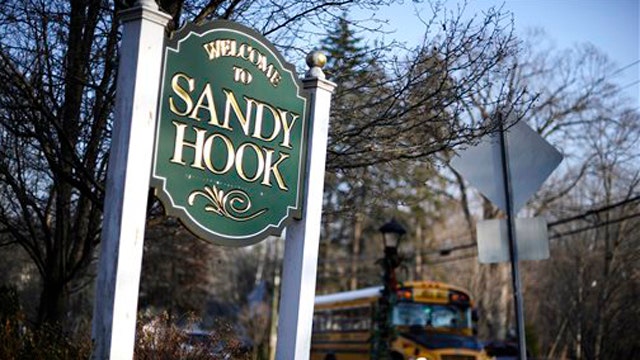Gun control advocates politicizing Newtown tragedy?
Group releases controversial ad days before shooting anniversary
President Obama has pushed hard for gun control this year and New York Mayor Michael Bloomberg has spent millions of dollars on ads, but the administration's promise to coordinate "a November lobbying effort and plan events to commemorate the first anniversary of the Newtown, Connecticut" has gotten little traction.
Last year the Newtown shooting, with it horrific slaughter, lead to an immediate national movement for gun control. But that was short-lived, and opposition to gun control is currently very strong. Indeed, it appears to be the strongest in decades.
A recent CNN poll finds the highest level of opposition to any new gun control measures since CNN started asking about it in 1989. Rising from only 28 percent opposed to new gun control measures then to 50 percent today. And it's not the only poll with such findings. Gallup finds that opposition to stricter laws has risen from 19 to 50 percent.
[pullquote]
What’s more, these polls don’t reflect that most people in favor of gun control don’t have strong feelings about it. Monthly Gallup polls from June to October this year reveal it’s just not viewed as a pressing issue.
In fact, it didn't even make the list of top 15 issues that Americans were most concerned about. In only one month, May, did as many as 7 percent of Americans say that they were most concerned about gun control (and that includes both sides of the issue), but since June it has ranged between 1 and 3 percent.
Recent newspaper headlines mirror these polls. Over the last couple days the Washington Post announced "How gun control is losing, badly (in charts)" or "Gun-control groups are shifting efforts and resources to handful of states."
Even at the state level the New York Times paints an anemic movement, counting up the passage of state gun laws, 39 tightening restrictions and 70 liberalizing them.
It almost seems as if gun control advocates like the New York Times are going out of their way to make their side look weak.
The more restrictive laws are going to do a lot more to reduce gun ownership than the liberalizations will increase it.
Maryland is now going to charge over $350 to license and register handguns and buyers will have to undergo four hours of training.
Yet, the Times viewed that as equivalent to West Virginia’s change that exempts concealed-carry permit holders who have already undergone background checks from another background check when they buy a gun.
A frequent claim by control advocates this year has been that 80 percent to 90 percent of Americans are in favor of expanded background-checks legislation. But the polls showing such overwhelming support really ask little more than whether people want to stop criminals from obtaining guns, not whether voters actually favor the legislation that the Senate was voting on.
The actual laws being discussed were much less popular.
For example, a mid-April poll by the Pew Research Center provides one such illustration when it asks voters whether they were happy that the Senate bill had been defeated. While 67 percent of Democrats were “disappointed” or “angry” about the defeat, more Republicans and independents were “ very happy” or “relieved” than upset by the defeat.
But gun control advocates aren’t giving up. They are patient, and they have money.
Mayor Bloomberg recently donated $250 million to the Bloomberg School of Public Health for 40 new academic positions, many of whom will deal with gun control issues. And that is in addition to the 8 people already doing so at the school.
Similarly, President Obama met with 23 foundations in January where they agreed to shift their focus from health care reform to gun control issues.
As if that wasn't enough, in June the federal government’s National Research Council issued a new report supporting Obama's push for federal funding of research on gun issues. The lopsidedness of the report is just a sign of things to come, of research to be funded by the Obama administration.
The newest strategy by gun control advocates seems to be a stealth strategy -- sneaking in fees and taxes for obtaining guns. These are penalties that will reduce gun ownership, particular for the very people who need them the most, the most likely victims of crime, the poor in high-crime urban neighborhoods.
Alas, the issue of gun control isn’t going away any time soon.

